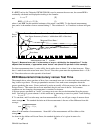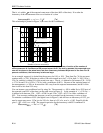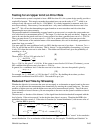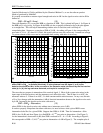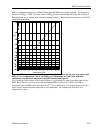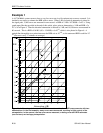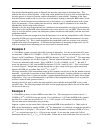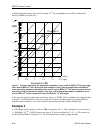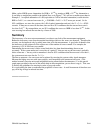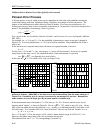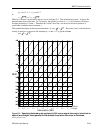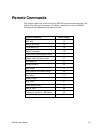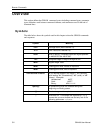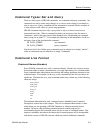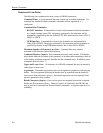
BERT Technical Articles
GB1400 User Manual B-41
Make a plot of BER versus Attenuation for SNR
0
= 10
−10
by starting at BER = 10
−10
for Attenuation =
0, and draw a straight line parallel to the dashed lines, as in Figure 7. We will use a smaller stress than in
Example 3. An optical attenuation of 1 dB (equivalent to 2 dB of electrical attenuation) would raise the
BER to 2×10
−7
, or a stressed error rate of r
s
= 51840000 × 2×10
−7
= 10.37 errors per second. So for
95% confidence, we stress the system with 1 dB of optical attenuation and test it for T
s
= 3 / r
s
= 0.289
seconds. If there are no errors in that time, then we have 95% confidence that the stressed error rate is
less than 2×10
−7
. By extrapolation, we are 95% confident the unstressed BER is less than 10
−10
. In this
case stressing has reduced the test time by a factor of 2000.
Summary
The inaccuracy of an error rate measurement is not due to any fault of the measurement equipment.
Rather the inaccuracy come from incomplete knowledge when too few errors are observed. Therefore the
accuracy can be improved only by taking more time to do the measurement. A good rule of thumb is that
the inaccuracy is the reciprocal of the square root of the number of errors counted. For example, the
inaccuracy is 5% if 400 errors are counted.
Determining that an error rate is below some limit takes less time than determining the error rate
accurately. If the system under test is error-free of a period T, then we can say the error rate is probably
below some rate r. An easy rule to remember is that for 95% confidence that the error rate is less than r,
the system must test error-free for T = 3 / r.
The time to measure a low error rate can be reduced by stressing the system with a signal attenuator.
Measure the higher error rate with stress quickly, and extrapolate to the unstressed error rate. (This
method assumes Gaussian noise and insignificant noise present before the attenuator.) Use the special
graph paper provided at the end of this article help in the extrapolation; you are free to copy it. Take care
to observe the guidelines for stressing in order to get good results.
It is worth taking the time to understand the properties of error rates. A small investment of time here can
pay off in big savings in reduced test time.
================



